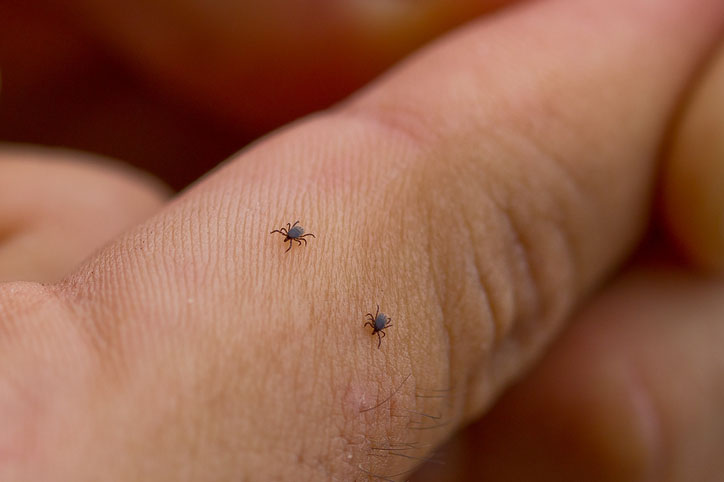Immune-deficiency Diseases in Cats
- Immune Disorders of Cats
- The Immune System of Cats
- Disorders Involving Anaphylactic Reactions (Type I Reactions, Atopy) in Cats
- Disorders Involving Cytotoxic Antibodies (Type II Reactions) in Cats
- Disorders Involving Immune Complexes (Type III Reactions) in Cats
- Disorders Involving Cell-mediated Immunity (Type IV Reactions) in Cats
- Immune-deficiency Diseases in Cats
- Immune System Tumors in Cats
- Gammopathies in Cats
Also see professional content regarding immunodeficiency diseases.
Like humans, cats can develop diseases and conditions that impair the function of their immune systems. Immune deficiency diseases have serious consequences and often lower the body’s defenses against infection. Some are inherited, and others are caused by viral infections (for example, feline immunodeficiency virus infection) or cancer.
Deficiencies in Phagocytosis
Phagocytosis is an essential mechanism of the immune system. Phagocytes are cells that engulf (phagocytize), digest, and kill foreign invaders. They can also serve as part of the adaptive immune system by presenting antigens to other cells in the adaptive system, thereby alerting them to the presence of the foreign invaders. Phagocytes are produced in the bone marrow, spread throughout the body via the bloodstream, and then gather in either tissue or the blood. They are found in the skin, spleen, lymph nodes, the coverings of the brain and spinal cord, bone marrow, and blood vessels throughout the body.
A deficiency in phagocytosis can be caused by a low number of phagocytes in the blood or by a viral infection or a congenital (birth) defect. The deficiency increases susceptibility to bacterial infections of the skin, respiratory system, and gastrointestinal tract.
Because a cat with reduced numbers of phagocytes has trouble fighting diseases, infections can easily develop into life-threatening complications. These infections respond poorly to antibiotics. Some conditions in cats that are known to affect phagocytosis include viruses such as feline leukemia, feline panleukopenia, and feline immunodeficiency; various disorders of white blood cell production; and bone marrow disorders.
Selective Immunodeficiencies
Persian cats have a tendency to develop severe and sometimes protracted infections of the skin, fur, and claws. Many are caused by fungal infections. In some Persian cats, the fungal infections invade the skin and cause the formation of small fleshy or grainy masses called mycetomas. Your veterinarian can recommend a treatment program for these infections.
Immunodeficiencies Caused by Viruses
Parvovirus occurs in both dogs and cats. This viral disease causes a severe and short-term reduction in the number of neutrophils and in the lymphocyte responsiveness. These failures of the immune system increase the risk of fungal infections such as aspergillosis, mucormycosis, and candidiasis.
Feline leukemia virus infection in cats causes a response similar to that seen in people infected with the human immunodeficiency virus. An infected cat will have an impaired immune system and a higher risk of acquiring infections from bacteria and other infectious agents in the environment. Dormant infections, such as feline infectious peritonitis, may suddenly flare up again.
Feline immunodeficiency virus is spread from cat to cat, primarily by biting. Cats that are allowed to roam outdoors, male cats, and older cats are more likely to become infected. This viral infection attacks the immune system, leading to signs such as anemia and low white blood cell counts, infections of the gums and mouth, cancer, or neurologic disease. Shortly after becoming infected, cats may have a fever and enlargement of the lymph nodes (glands). However, these signs go away and the cat may appear healthy with no further signs of infection for months or years. However, once infected, cats remain infected for life and most eventually have a deterioration of immune function and increased risk of infections.
Infection with feline immunodeficiency virus is diagnosed by a complete medical history and physical examination combined with a blood test that measures anti-bodies against the virus. There is no effective treatment, but supportive care and treatment of signs is important. This includes giving antibiotics for bacterial infections, providing a balanced diet, controlling parasites, keeping the cat indoors and isolated from other cats, and removing tumors.
A vaccine for feline immunodeficiency virus is available, but not all vaccinated cats will be protected, so preventing exposure is important, even for vaccinated pets. Vaccination may also have an impact on future feline immunodeficiency test results. You should discuss whether or not your cat needs this vaccine with your veterinarian.
- Immune Disorders of Cats
- The Immune System of Cats
- Disorders Involving Anaphylactic Reactions (Type I Reactions, Atopy) in Cats
- Disorders Involving Cytotoxic Antibodies (Type II Reactions) in Cats
- Disorders Involving Immune Complexes (Type III Reactions) in Cats
- Disorders Involving Cell-mediated Immunity (Type IV Reactions) in Cats
- Immune-deficiency Diseases in Cats
- Immune System Tumors in Cats
- Gammopathies in Cats






